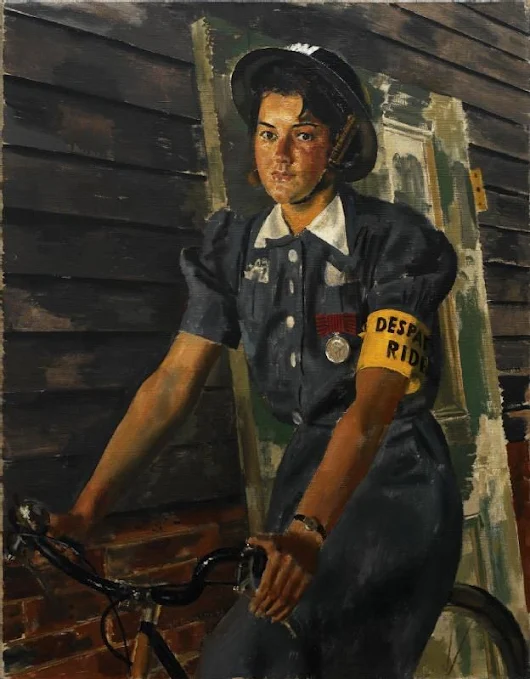Gertrude Mary Denman, Baroness Denman, GBE (née Pearson; 7 November 1884 – 2 June 1954), sometimes known as Trudie, was a British woman active in women's rights issues including the promotion of Women's suffrage in the United Kingdom. She was also the wife of the 3rd Baron Denman, fifth Governor-General of Australia, and she officially named Australia's capital city Canberra in 1913 >.
In 1933 Lady Denman was appointed a Dame Commander of the Order of the British Empire (DBE). She was advanced to Dame Grand Cross (GBE) in 1951. These entitled her to be known as Dame Gertrude Denman; however, as the wife of a peer, her existing title Lady Denman subsumed this.
During World War II she was Director of the Women's Land Army and Charmain of the Women's Institute.
She was the second child, and only daughter, of Weetman and Annie Pearson (later Viscount and Vicountess Cowdray). Her father was a successful businessman, initially in engineering, and later in the development of oilfields in Mexico, the production of munitions for the First World War, building the Sennar Dam on the River Nile, as well as coal mining and newspaper publishing. Weetman was a staunch Liberal who supported causes such as free trade, Irish Home Rule and women's suffrage. Trudie's mother, Annie Pearson (née Cass) was the daughter of a farmer from Bradford, Yorkshire. A woman of strong character, Annie Pearson was a feminist who was an active member of the executive of the Women's Liberal Federation.
At the age of sixteen, Trudie completed her formal education at a finishing school in Dresden.
1939-45 [Australia at War - Women's Status Changes] - Free > .
https://en.wikipedia.org/wiki/Gertrude_Denman,_Baroness_Denman
https://en.wikipedia.org/wiki/Balcombe_Place
https://en.wikipedia.org/wiki/Balcombe_Place#Cowdray_Estate
http://www.bbc.co.uk/history/ww2peopleswar/stories/95/a5825595.shtml
http://www.historylearningsite.co.uk/world-war-two/world-war-two-in-western-europe/britains-home-front-in-world-war-two/the-womens-land-army/
http://core.ac.uk/download/pdf/9554523.pdf .
https://en.wikipedia.org/wiki/Gertrude_Denman,_Baroness_Denman
https://en.wikipedia.org/wiki/Balcombe_Place
https://en.wikipedia.org/wiki/Balcombe_Place#Cowdray_Estate
http://www.bbc.co.uk/history/ww2peopleswar/stories/95/a5825595.shtml
http://www.historylearningsite.co.uk/world-war-two/world-war-two-in-western-europe/britains-home-front-in-world-war-two/the-womens-land-army/
http://core.ac.uk/download/pdf/9554523.pdf .



